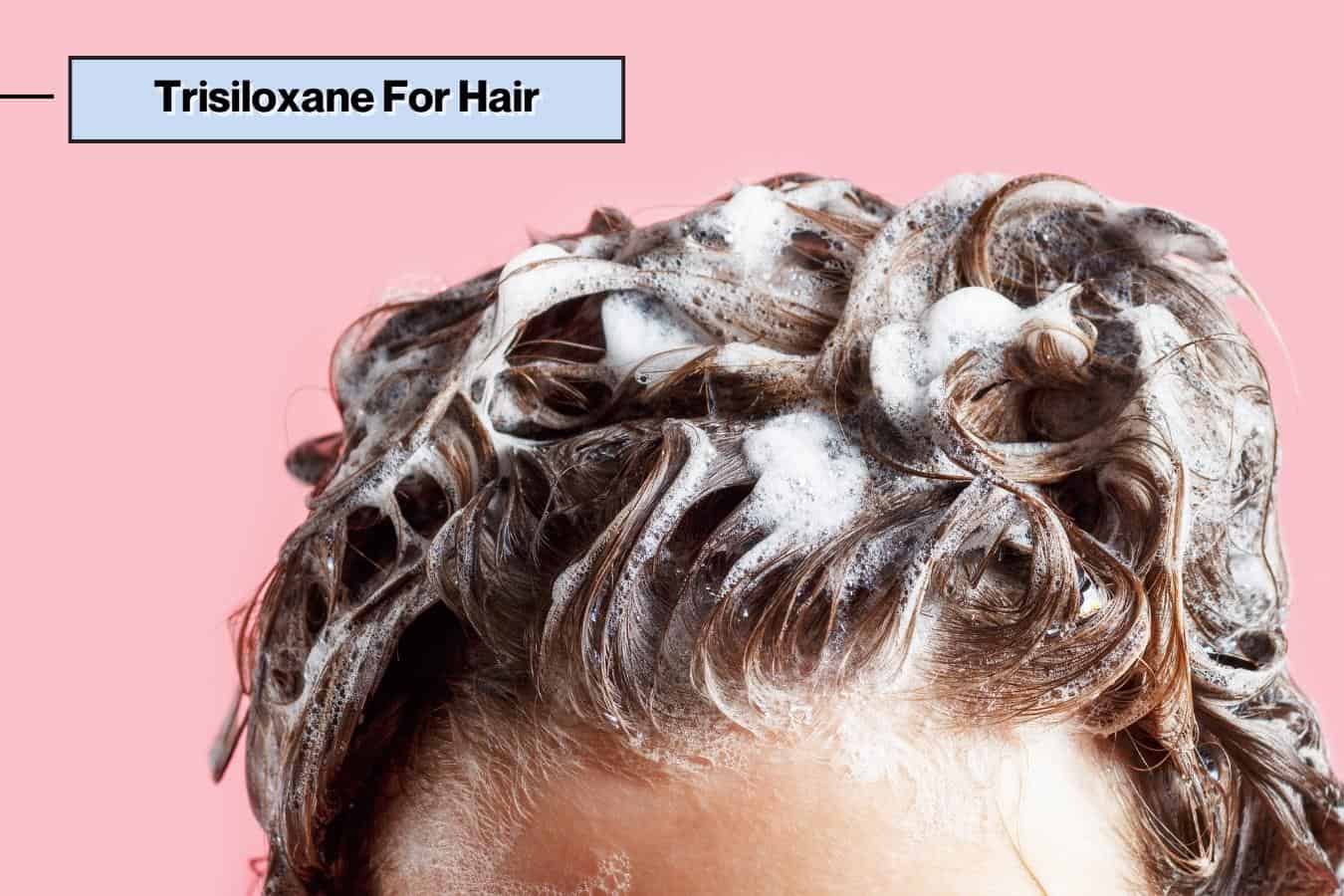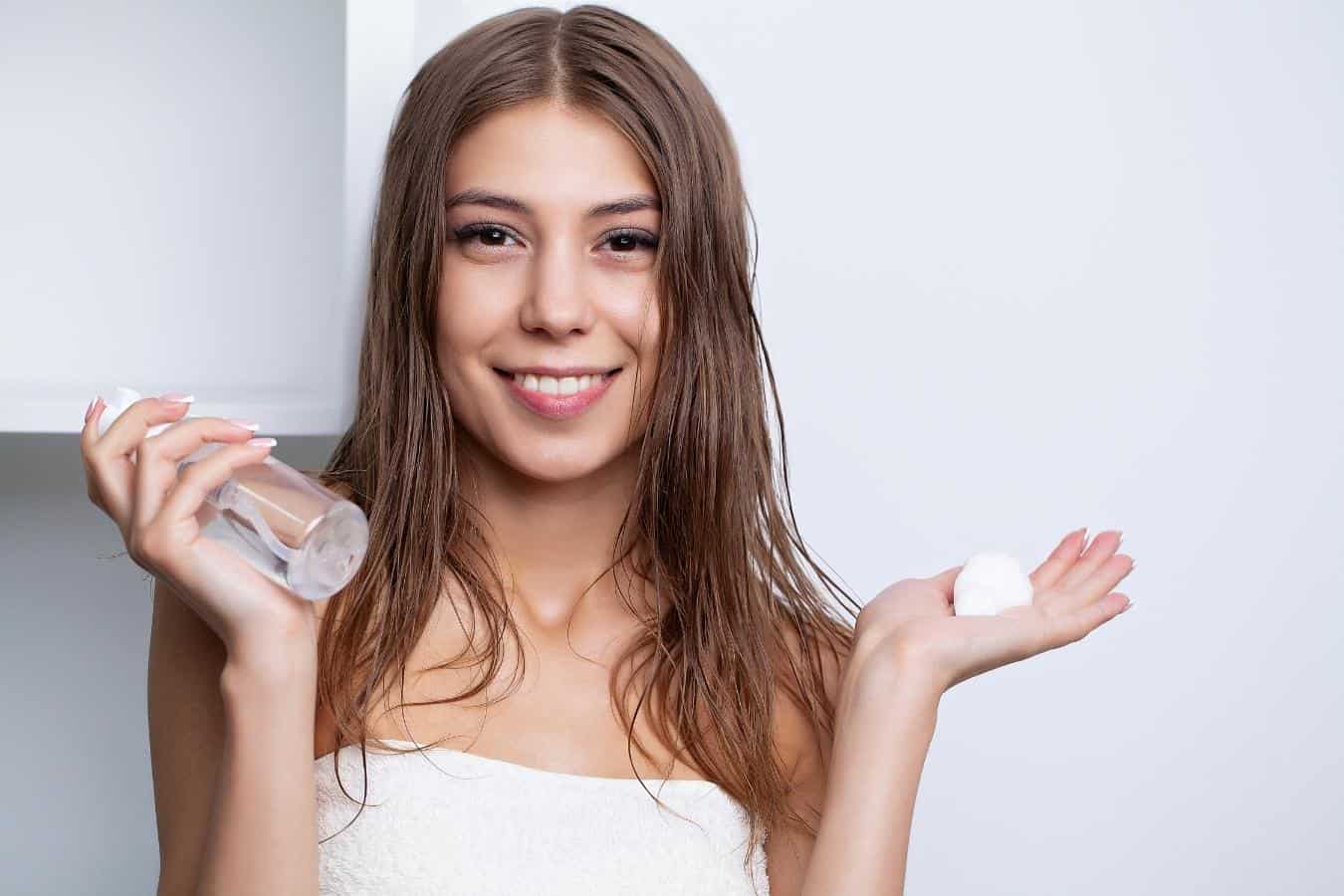Trisiloxane (siloxane) is a silicone used as a cosmetic ingredient and is commonly found in hair and skin products. But is Trisiloxane good or bad for your hair? In this article, we explore the pros and cons of this widely used ingredient.

Main Takeaways
- Trisiloxane is perfectly safe to use on your hair
- Trisiloxane helps to add moisture to hair and fill in gaps in the hair cuticle
- It is a volatile silicone which means it evaporates as the hair dries
- Trisiloxane does not leave hair moisturized long-term or provide UV protection
What Is Trisiloxane?
Trisiloxane is a colorless, spreadable silicone. Being a silicone, trisiloxane is derived from silica which is a derivative of sand.
This goes through several chemical processes, undergoing several chemical reactions.
The result is silicone, the ingredient found in countless cosmetic products and which helps to condition the skin and hair.
Is Trisiloxane Good Or Bad for hair?
Trisiloxane is a volatile silicone which means it behaves differently from other types of silicones (occlusive silicones and water-based silicones).
So while you would be wise to avoid many silicones out there, trisiloxane is not necessarily one of these. As a volatile silicone, it evaporates as the hair dries, leaving behind the slip and shine required.
When used in hair products, Trisiloxane makes it easier to comb and manage your hair, even when wet. It does this by filling in gaps in the hair cuticles which make them smoother.
The only drawback to Trisiloxane is that it does little to improve hair’s capacity to retain moisture in the long term.
It also offers little protection from UV rays or heat styling. This is something worth bearing in mind.
Are All Silicones Bad For Hair?

Silicones are often feared due to their reputation for repelling water.
They leave hair dry as they reduce moisture content.
Not only this, but they also compromise the protein bonds that make up 97% of the hair, making it more susceptible to breakage.
These silicones are known as occlusive silicones.
Silicones like these can be tricky to wash out as they coat the hair. And as we wash our hair, with products that often contain more silicone, we are actually layering on the silicone.
So, to remove silicone, only a clarifying shampoo will do.
Without using this, you run the risk of allowing your hair to dry out over time, leaving your hair looking lifeless and dull.
This is due to the nature of silicones: they will let moisture evaporate from your hair but will not permit any moisture in.
And if silicones are coating the hair, they are also coating the scalp.
If not removed (by treatment of clarifying shampoo as mentioned), then silicones can build up in the hair follicles, possibly leading to scalp irritation and even hair loss in extreme cases.
However, there is some good news. These silicones don’t build up through repeated use.
Layers of silicone already in the hair are repelled by a new layer. These silicones also offer hair high resistance to heat.
However, not all silicones are like this. As previously mentioned, volatile silicones evaporate from hair as it dries.
What About Water-Soluble Silicones?
Water-soluble silicones wash away with water.
They are emulsified easily when they come into contact with water.
In theory, then, this means we can enjoy the shine and silky texture offered by some silicones without worrying about hair damage.
So, Is Trisiloxane Good Or Bad For Hair
Trisiloxane is a volatile silicone which means that it evaporates as your hair dries. It, therefore, does not leave a waxy layer on your hair as other silicones do.
Trisiloxane is therefore quite safe to use on all hair types and won’t damage your locks with repeated use.
Frequently Asked Questions
Silicones are not bad for naturally curly hair. However, some sources recommend avoiding the use of silicones in naturally curly hair as they can weigh curls down, cause dryness and lead to build-up which can be hard to remove.
There are many products out there that are free from silicone and offer similar benefits for hair. They do this by using waxes and oils in their products. However, they aren’t always the answer as many of these oils can be just as damaging as silicones, if not more so.
Yes, the silicones from our shampoos and other products can cause harm to the environment. Each time As we rinse away the soapy lather, they end up in our bodies of water. This makes them partially responsible for the build-up of microplastics being found in our oceans.
Disclaimer: This site is not intended to provide professional or medical advice. All of the content on LovedByCurls.com is for informational purposes only. All advice should be followed at your own discretion. Ingredients may change at any time so always check the product label before using. Check our full disclaimer policy here.
